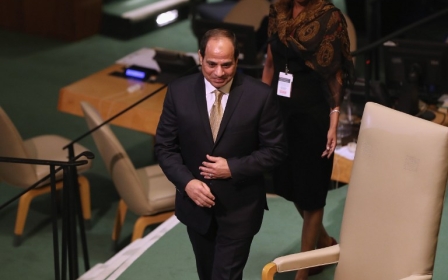Saudi Arabia halts oil supplies to Egypt
Saudi oil supplies to Egypt have been halted since the beginning of the month, an Egyptian official told Reuters.
Saudi state oil company Aramco informed Egypt of the suspension verbally, CNBC Arabia reported. The reason for the halt remains unclear.
Riyadh has a deal with Cairo to provide 700,000 tonnes of refined oil products monthly for five years. The $23bn agreement was signed between Saudi Aramco and Egyptian General Petroleum Corporation (EGPC) during the visit of Saudi King Salman to Egypt last year.
A spokesman for EGPC played down the significance of the oil suspension, saying that the oil accord is still in place.
“The oil comes as a part of a commercial deal; it is not a donation,” EGPC’s Hamid Abdul Aziz told Lebanese newspaper Assafir.
Saudi Arabia has contributed billions of dollars to the Egyptian economy in forms of grants, loans and trade deals since the overthrow of Muslim Brotherhood president Mohamed Morsi by the Egyptian military in 2013.
However, some observers pointed to political disagreements between the two countries.
On Friday, Egypt voted in favour of a Russian-sponsored UN Security Council resolution regarding the bombardment of Aleppo.
Russia is pounding rebels fighting the government of Syrian President Bashar al-Assad in Aleppo, while Saudi Arabia supports groups seeking his departure. The Russian proposal failed to get a minimum nine votes in favour on Friday.
Riyadh may also be irked because of Cairo’s failure to finalise an agreement that would transfer two Egyptian-controlled Red Sea islands to Saudi Arabia.
The deal over the islands was struck down by an Egyptian court and is now facing a legal battle in Egypt.
Middle East Eye propose une couverture et une analyse indépendantes et incomparables du Moyen-Orient, de l’Afrique du Nord et d’autres régions du monde. Pour en savoir plus sur la reprise de ce contenu et les frais qui s’appliquent, veuillez remplir ce formulaire [en anglais]. Pour en savoir plus sur MEE, cliquez ici [en anglais].




